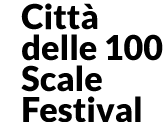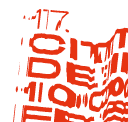Television Series – Artificial Intelligence and New Imaginative Horizons: Students and Experts in Dialogue
Call for High School Students in Basilicata
Why have television series become the new forms of storytelling? How are communities conceived, imagined, and experienced? What role does generative AI play in creative processes?
These are questions that will be explored through a cultural and educational journey, aimed particularly at high school students and open to the public, to delve into the new aesthetic and imaginative horizons emerging from television series, authentic artifacts of contemporary imagination.
The program aims to address the theme of togetherness, starting from the forms assumed by communities within inter and cross-media environments. In particular, the representation, experience, and construction of communities through TV series will be examined, as they constitute narrative forms capable of inhabiting the imagination and storytelling of our time. Furthermore, the intention is to understand the role that generative Artificial Intelligence has and will have in the field of creativity and art, being one of the most innovative and pervasive technologies destined to have an even greater impact in the future.
The project involves selected students from different schools (a total of 60), who will participate in structured workshops within their schools, focusing on specific television series. They will also have the opportunity to interact with experts through public meetings.
Massimiliano Coviello (Associate Professor of Film and Television at Link University in Rome) will revisit some key moments of the new millennium, from the 9/11 terrorist attack to the Covid-19 pandemic, focusing on how communities are represented within serial narratives and interact with them. Ugo Erra (Associate Professor at the Department of Mathematics, Computer Science, and Economics at the University of Basilicata) will discuss how generative AI is changing our perception of art and creativity, pushing the boundaries of what is possible and bringing a new dimension to artistic production. Gianluigi Rossini (lecturer in "Formats and Television Languages" at the University of Teramo) will examine the series "Skam Italia" and "Mare fuori," comparing their features in terms of style, narrative form, representation of gender, and approach to characters within the Italian production context, which pays little attention to young people and the teenage audience.

Massimiliano Coviello is an Associate Professor of Film and Television at Link University in Rome. His research focuses on the relationship between cultural memory and media narratives, the representation of migratory phenomena, and the analysis of contemporary film and seriality. He is a member of the editorial board of the scientific journal "Fata Morgana" and the chief editor of the critical journal "Fata Morgana Web." He has written the entry "Emigration" for the "Lexicon of Italian Cinema" (2014) and the monographs "Testimoni di guerra" (2015), "Sensibilità e potere" (with F. Zucconi, 2017), and "Comunità seriali" (2022).
Ugo Erra is an Associate Professor at the Department of Mathematics, Computer Science, and Economics at the University of Basilicata. For over a decade, since 2009, he has been teaching courses on Foundations of Three-Dimensional Graphics and Advanced Three-Dimensional Graphics for the master's degree in computer science. In 2010, he founded the Computer Graphics Laboratory at the Department of Mathematics, Computer Science, and Economics of the University of Basilicata, where he currently serves as the Scientific Director. His main research areas include Three-Dimensional Graphics, Parallel Computing, Virtual and Augmented Reality, Agent-Based Simulations, and Artificial Intelligence. He has worked on research collaborations with companies, research institutions, and projects related to the laboratory's expertise. Currently, he is the University's Scientific Director for the project "Casa delle Tecnologie Emergenti di Matera" (House of Emerging Technologies in Matera) for the establishment of a Virtual and Augmented Reality laboratory aimed at technology transfer to companies.

Gianluigi Rossini is a lecturer in "Formats and Television Languages" at the University of Teramo. He published the book "Le serie TV" (2016) and numerous essays in academic journals and collective volumes. His main areas of interest include television studies, television seriality, narratology of seriality, podcasting, and digital media. He is a research fellow at Link University in Rome as part of the European project GEMINI (Gender Equality through Media Investigation and New Training Insights). He writes about TV series every week in the "Domenicale" section of "Sole 24."













